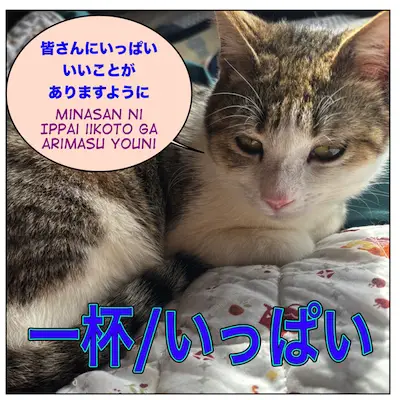
皆さんにいっぱい、いいことがありますように。
= みなさんにいっぱい、いいことがありますように。
= Minasan ni ippai, ii koto ga arimasu you ni.
= I hope many good things happen to you all.

皆さんにいっぱい、いいことがありますように。
= みなさんにいっぱい、いいことがありますように。
= Minasan ni ippai, ii koto ga arimasu you ni.
= I hope many good things happen to you all.
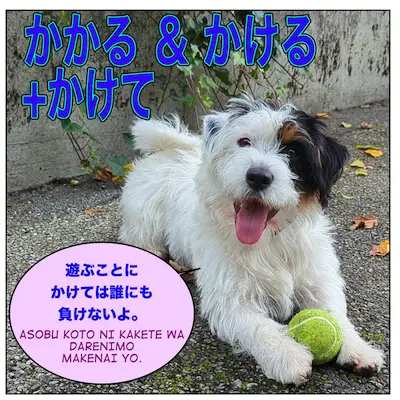
遊ぶことにかけては誰にも負けないよ。
= あそぶことにかけてはだれにもまけないよ。
= Asobu koto ni kakete wa dare nimo makenai yo.
= When it comes to playing, no one can beat me!
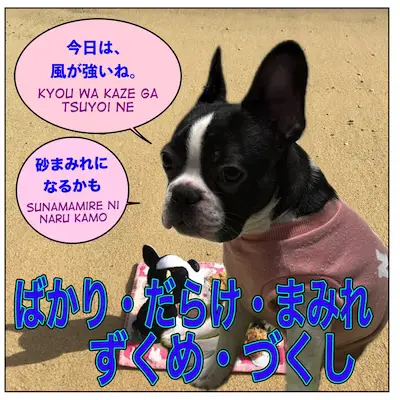
「今日は、風が強いね。」
= きょうは、かぜがつよいね。
= Kyou wa, kaze ga tsuyoi ne.
= It’s very windy today.
「砂まみれになるかも」
= すなまみれになるかも
= Sunamamire ni naru kamo.
= I might get covered with sand.
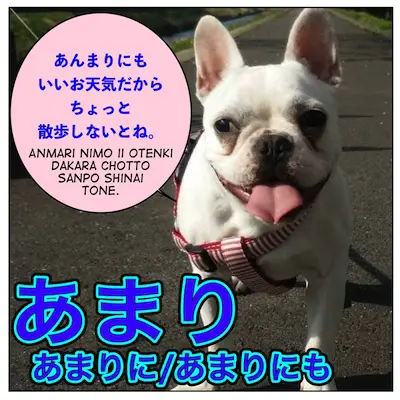
「あんまりにもいいお天気だからちょっと散歩しないとね。」
= あんまりにもいいおてんきだからちょっとさんぽしないとね。
= Anmari nimo ii otenki dakara chotto sanpo shinai tone.
= The weather is so nice that I thought I should go for a little walk.

「カウチの上でも日本語のレッスンはできるよ。」
= カウチのうえでもにほんごのレッスンはできるよ。
= Kauchi no ue demo nihongo no ressun wa dekiru yo.
= I can teach Japanese even on the couch.

「ここでは眠れないよ。」
= ここではねむれないよ。
= Koko dewa nemurenai yo.
= I can’t sleep here.

「子守唄歌ってあげるね。」
= こもりうたうたってあげるね。
= Komoriuta utatte ageru ne.
= I’ll sing a lullaby for you.
「全く眠れないよ。」
= まったくねむれないよ。
= Mattaku nemurenai yo.
= I can’t sleep at all.

「全然似合ってるよ」*
= ぜんぜんにあってるよ。
= Zenzen niatteru yo.
= It looks really good on you!
(* very conversational)

「好きなことをした方がいいよ。」
= すきなことをしたほうがいいよ。
= Sukina koto wo shita hou ga ii yo.
= You should do things you like.
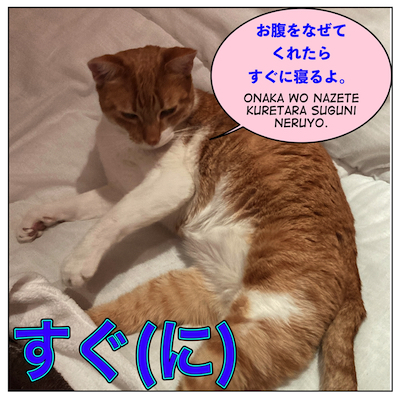
「お腹をなぜてくれたらすぐに寝るよ。」
= おなかをなぜてくれたらすぐにねるよ。
= Onaka wo nazete kuretara sugu ni neru yo.
= If you rub my belly, I’ll fall asleep right away.
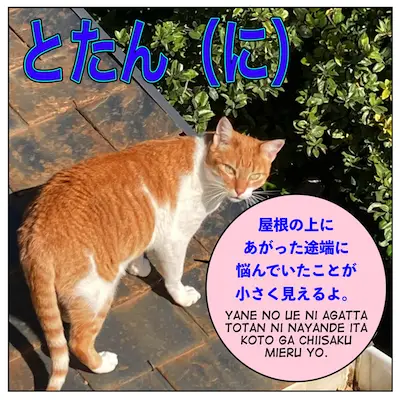
「屋根の上にあがったとたんに悩んでいたことが小さく見えるよ。」
= やねのうえにあがったとたんになやんでいたことがちいさくみえるよ。
= Yane no ue ni agatta totan ni nayande ita koto ga chiisaku mieru yo.
= As soon as I got up on the roof, my worries seemed small.
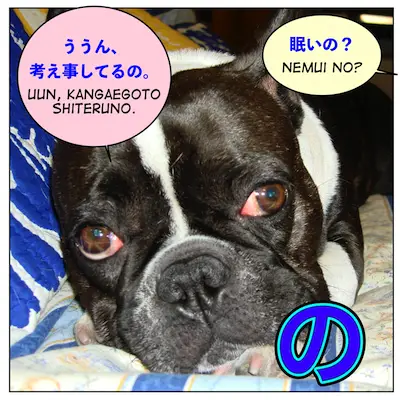
「眠いの?」
= ねむいの?
= Nemui no?
= Are you sleepy?
「ううん、考え事してるの。」
= ううん、かんがえごとしてるの。
= Uun, kangaegoto shiteru no.
= No, I’m doing some thinking.